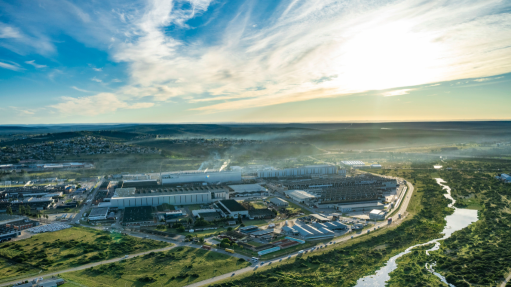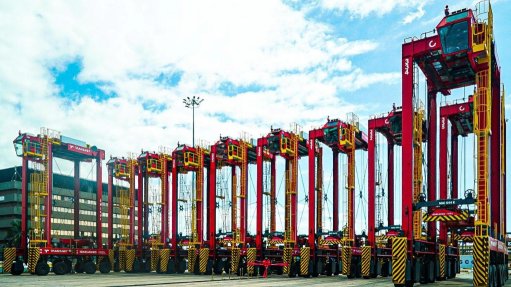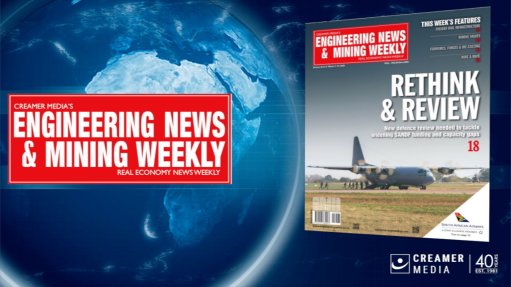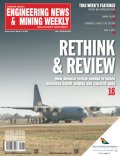Skills gap in renewable energy presents challenges, opportunities
There is a definite skills gap in the country’s renewable energy and associated industries, as South Africa looks to meet ambitious 2030 greenhouse-gas emission reduction and renewable energy targets, and the country must prioritise identifying what is lacking across the entire value chain and use certain mechanism to ensure that this gap is bridged.
This was the key message from speakers in CTU Training Solutions’ webinar, held in collaboration with the South African Photovoltaic Industry Association (SAPVIA) and the South African Wind Energy Association (SAWEA) on November 8.
Council for Scientific and Industrial Research senior researcher Dr Lorren Haywood pointed out that the renewable energy industry was not necessarily synonymous with sustainability; however, she was optimistic that research and work was being undertaken to steer it in this direction.
For example, there is a challenge of what to do with solar panels when they come to the end of their life, with these containing metals that could contaminate the environment, and plastic polymers, and this needs to be addressed.
Genesis Infrastructure and Renewable Energy Group MD Davin Chown pointed out that the country’s solar industry was exploring possible recycling solutions in this regard.
He further noted that the question for the renewable industry as a whole was how it would afford the costs of the just energy transition.
Haywood added that another example of sustainability challenges was in the wind energy industry, with the wind the turbines caught affecting the micro-climate in the area, which goes against the aim of renewable energy to reduce impact on the environment and climate.
However, such factors were being taken into account, Haywood said, especially the long-term effects of the renewable energy industry.
She pointed out that there was a definite skills shortage in this regard. With the renewable energy industry growing rapidly, there was an opportunity to understand what the potential impacts were, and a skills opportunity to design sustainable solutions to mitigate this, Haywood noted.
She said this was a new area of research that was emerging, as the impacts of the industry were becoming better understood.
Haywood also outlined an opportunity in co-designing ecosystems. For example, with solar projects using large areas of land, there was an opportunity to use skills to develop different uses for the land, she said, such as agricultural skills.
Haywood also highlighted an opportunity in sustainable construction, emphasising that renewable energy projects must be approached from this perspective, with a greater focus needed on skills in this area.
Solareff COO De Villiers Botha pointed out that the country could take learnings from other countries that are more advanced in their renewable energy industries, thereby mitigating losses of money and resources.
G7 Renewable Energies chief commercial officer Dr Clinton Carter Brown pointed out that there was a skills gap in the country as a whole.
He said the renewable energy industry provided a good opportunity to address this, given that there was no shortage of good projects being pursued.
However, he said that getting the projects implemented was the real challenge. Therefore, what was needed were skills and a deep understanding of areas like project management and finance, besides others, to ensure that projects were bankable and were realised.
Brown highlighted considerable opportunity for skills development in this regard, with the need for seasoned senior people to guide and mentor more junior staff in these processes.
This could mean bringing in skills from older industries and leveraging them for the new industries.
Brown said that, once the renewable energy industry was well established, it would become largely self-sustained in terms of the skill base.
CTU Training Solutions academic dean Dr Abhinanda Barman emphasised that skills mattered because they acted as an enabler. “It is important for us to understand that those that are trained today, become the labour force of tomorrow.”
She indicated in South Africa, there was a lack of skills in both students and those training them, especially in science, technology, engineering and mathematics skills.
Barman also emphasised the need for more data in the renewable energy industry, in terms of wages, job requirements and salary structure, besides others.
ERM principal consultant Carla Hudson emphasised the need to look at the renewable energy value chain in its entirety, and to see where skills were needed, from development into operation, and even in the rehabilitation and decommissioning phase.
This was reiterated by Mainstream Asset Management GM Titania Stefanus-Zincke, who said that all of the required skillsets across the value chain must be understood to ensure a sustainable skills pipeline to get the country to its 2030 goals.
Stefanus-Zincke also indicated the need to transfer skills from other sectors, with this to be done in conjunction with upskilling and developing necessary skills within the renewable energy industry.
SAPVIA CEO Dr Rethabile Melamu highlighted that skills planning for the country would be vital.
She said the country had to be mindful of its unemployment problem and that not everyone would have the opportunity to go to university or have training for highly technical skills.
Therefore, this requires a dual effort of developing these skills, while also ensuring that those that are not highly skilled can find opportunities to work in the renewable energy industry.
Obelisk Energy MD Riccardo Buehler said it was also important to ensure skills were developed where they would be needed.
For example, he said that renewable energy projects could be located in areas where communities would be unable to access the skills needed to capitalise on this. Therefore, he said the industry had to ensure it created opportunities and access to skills development in the areas where projects were located.
Comments
Press Office
Announcements
What's On
Subscribe to improve your user experience...
Option 1 (equivalent of R125 a month):
Receive a weekly copy of Creamer Media's Engineering News & Mining Weekly magazine
(print copy for those in South Africa and e-magazine for those outside of South Africa)
Receive daily email newsletters
Access to full search results
Access archive of magazine back copies
Access to Projects in Progress
Access to ONE Research Report of your choice in PDF format
Option 2 (equivalent of R375 a month):
All benefits from Option 1
PLUS
Access to Creamer Media's Research Channel Africa for ALL Research Reports, in PDF format, on various industrial and mining sectors
including Electricity; Water; Energy Transition; Hydrogen; Roads, Rail and Ports; Coal; Gold; Platinum; Battery Metals; etc.
Already a subscriber?
Forgotten your password?
Receive weekly copy of Creamer Media's Engineering News & Mining Weekly magazine (print copy for those in South Africa and e-magazine for those outside of South Africa)
➕
Recieve daily email newsletters
➕
Access to full search results
➕
Access archive of magazine back copies
➕
Access to Projects in Progress
➕
Access to ONE Research Report of your choice in PDF format
RESEARCH CHANNEL AFRICA
R4500 (equivalent of R375 a month)
SUBSCRIBEAll benefits from Option 1
➕
Access to Creamer Media's Research Channel Africa for ALL Research Reports on various industrial and mining sectors, in PDF format, including on:
Electricity
➕
Water
➕
Energy Transition
➕
Hydrogen
➕
Roads, Rail and Ports
➕
Coal
➕
Gold
➕
Platinum
➕
Battery Metals
➕
etc.
Receive all benefits from Option 1 or Option 2 delivered to numerous people at your company
➕
Multiple User names and Passwords for simultaneous log-ins
➕
Intranet integration access to all in your organisation


















